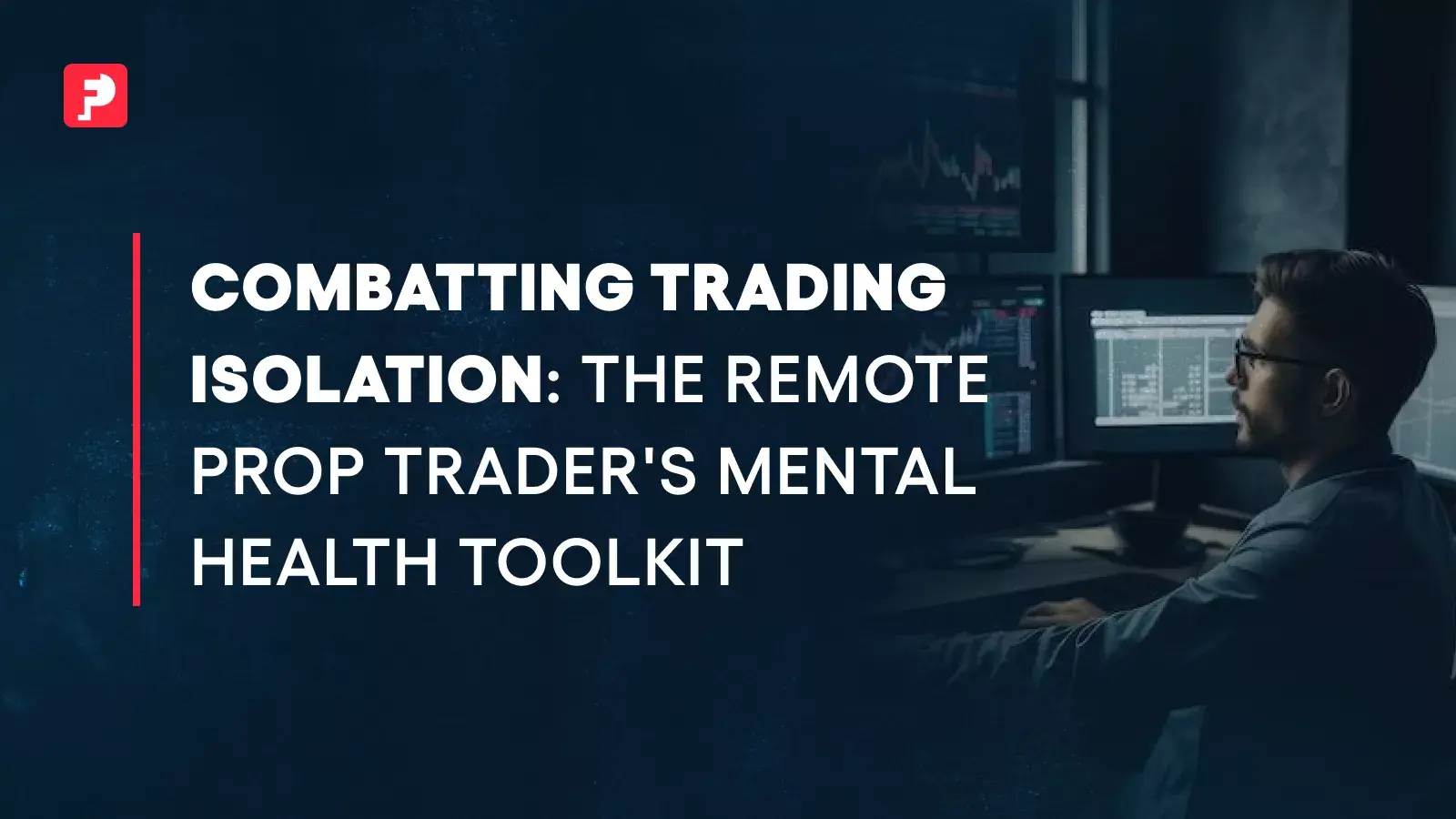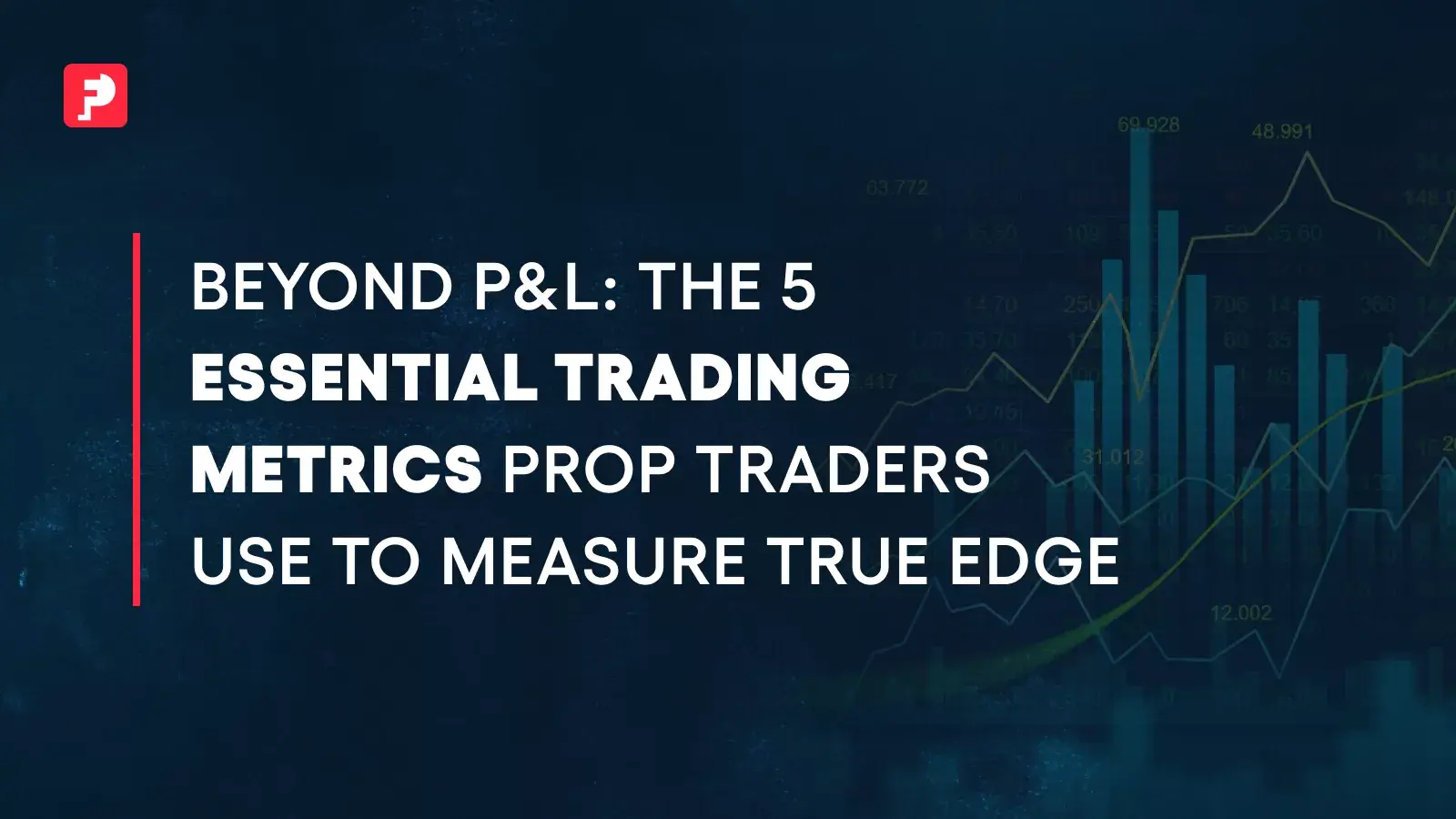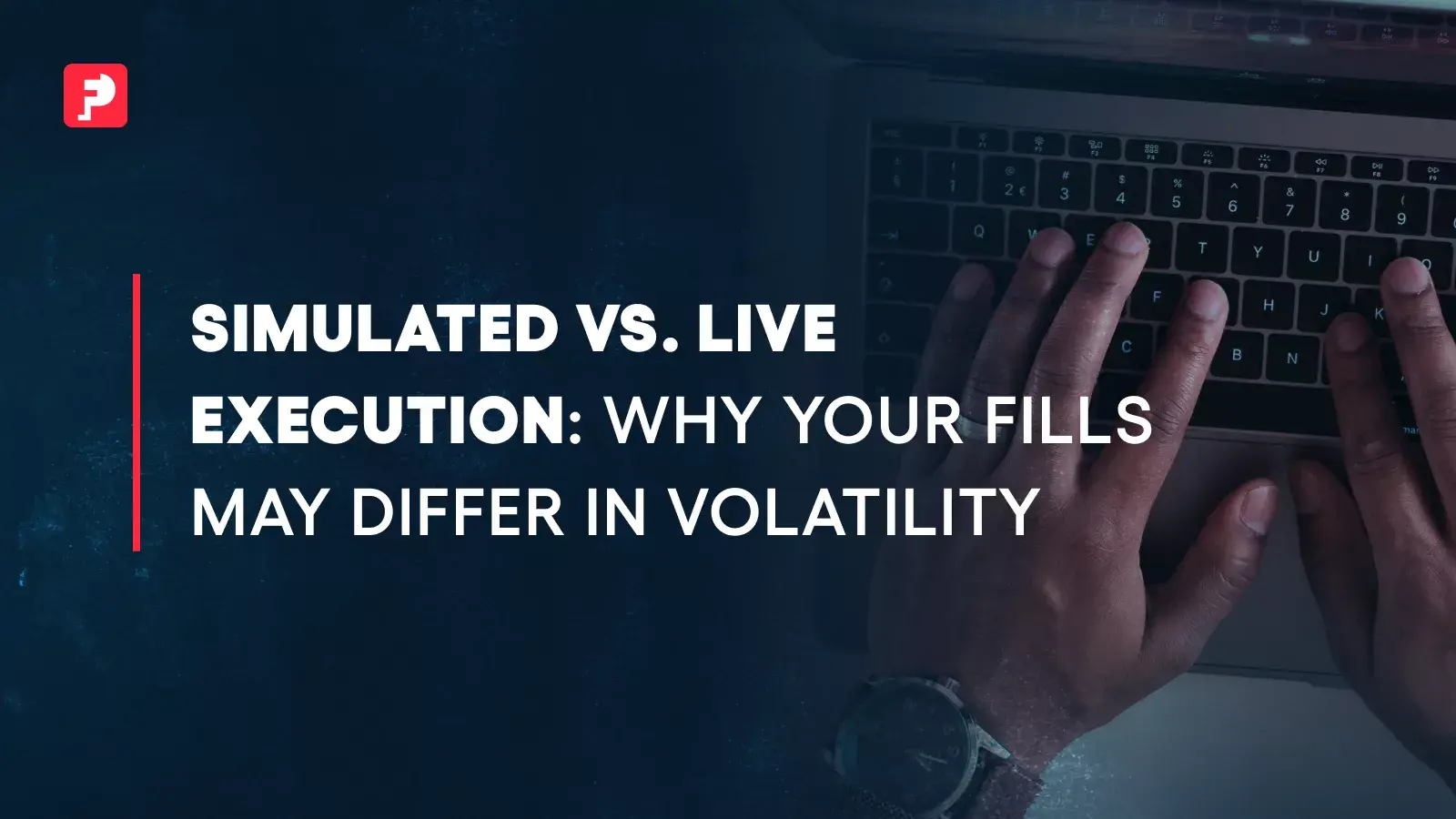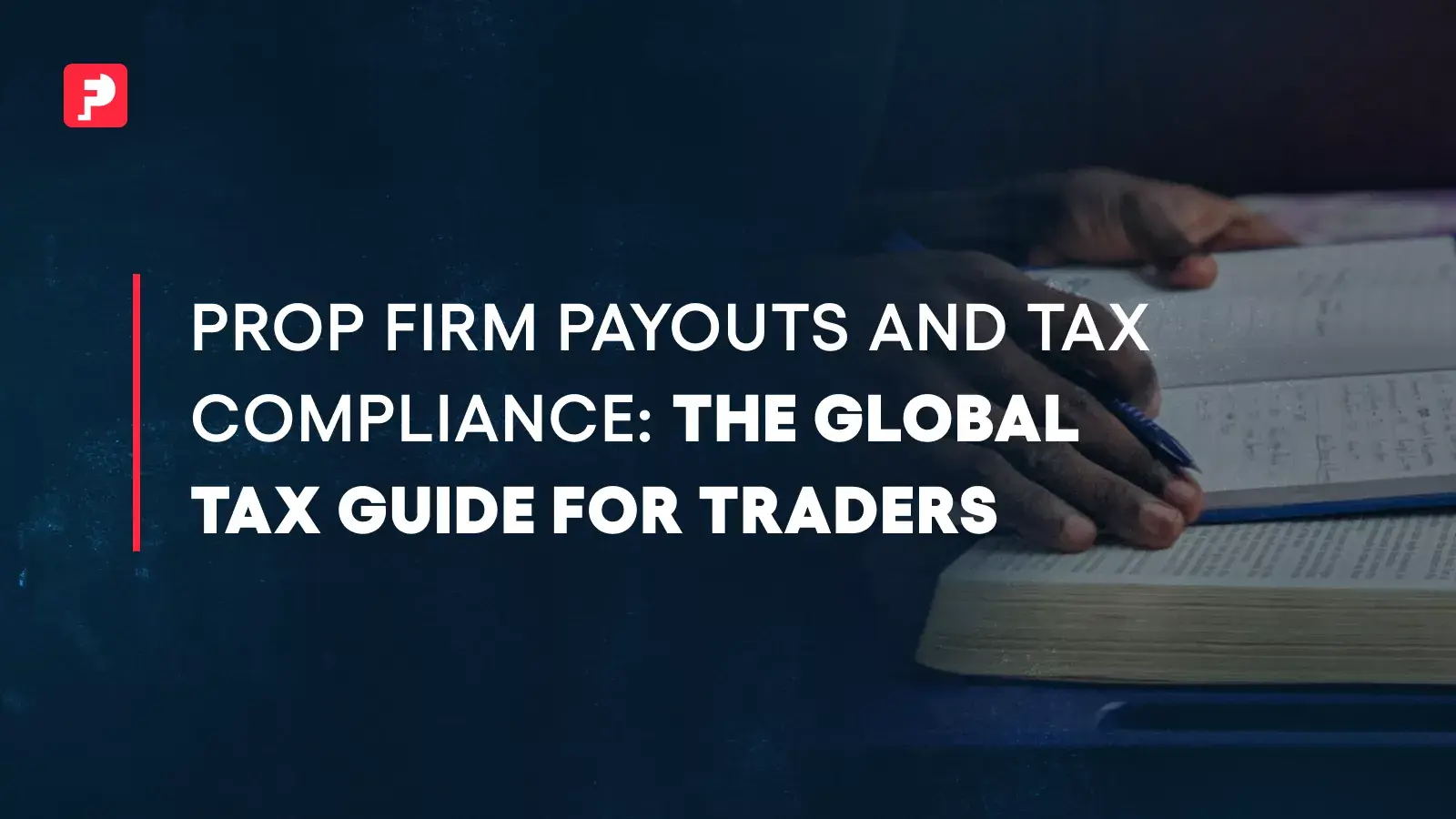In prop trading, skill with charts, strategies, and risk management will only get you so far. What separates consistently profitable traders from those who burn through capital is not just technical ability; it is psychology. A trader with the right mindset can execute their edge with discipline, while a trader without it will struggle, even with the best strategy.
Funded accounts add another layer of pressure. You are trading capital that is not your own, subject to strict rules, and often with evaluation targets to hit. The challenge is not only in analyzing the market but also in mastering yourself.
This blog explores the key psychological principles behind successful prop trading and provides actionable steps to strengthen mental discipline.
The Core Psychological Challenges in Prop Trading
- Performance Pressure and Evaluation Stress
Funded traders often feel the weight of trading someone else’s capital. Even minor drawdowns can feel amplified because they are tied to account rules. This pressure can push traders into overtrading, exiting early, or taking impulsive risks. - Fear of Loss
Losses are part of trading, yet many traders internalize them as personal failure. In a prop firm environment, losses can feel like threats to your future, which intensifies fear. That fear clouds judgment and prevents you from following your plan. - Overconfidence After Wins
Winning streaks can be just as dangerous as losing streaks. Traders who feel invincible may increase position sizes, ignore stop losses, or deviate from their system. Overconfidence erodes consistency. - Impatience and the Need for Action
Markets reward patience, yet many traders crave constant activity. In prop trading, where profit targets may exist, impatience leads to forcing trades instead of waiting for high-quality setups.
Lessons from Trading Psychology and Behavioral Finance
Research in behavioral finance provides valuable insights into why traders behave irrationally. For example:
- Loss Aversion: Traders feel the pain of losses more strongly than the pleasure of gains. This explains why cutting losses is so difficult.
- Recency Bias: Recent results influence decision-making disproportionately. A big win can inflate confidence, while a recent loss may paralyze action.
- Confirmation Bias: Traders tend to seek information that validates their position, ignoring evidence against it.
Understanding these biases does not eliminate them, but awareness allows traders to counter them with structured rules and self-discipline.
Practical Strategies for Mastering Prop Trading Psychology
- Build and Trust Your Trading Plan
Your plan is your anchor. Without it, every market movement becomes a decision point, inviting emotion into the process. A complete trading plan should outline entry rules, exit rules, position sizing, and maximum daily risk. Once written, your job as a trader is to execute it consistently.
Tip: Before starting a prop evaluation or trading a funded account, simulate your plan extensively in demo environments. This builds trust in the process, which reduces emotional second-guessing. - Separate Self-Worth from Trading Outcomes
Losing trades does not mean you are a bad trader, just as winning trades do not make you a market genius. Prop trading accounts are performance environments, not personal judgements. Detaching your identity from outcomes allows you to focus on process rather than ego.
Exercise: After each session, write a short reflection: Did I follow my plan? Did I manage risk? Evaluate yourself on discipline, not profits. - Use Risk Management as a Psychological Shield
Risk management is more than capital protection; it is emotional protection. Knowing that you cannot lose more than a set percentage in a day prevents the panic that leads to revenge trading.
At FunderPro, we emphasize risk-managed growth because it mirrors how professional traders manage institutional capital. Clear risk rules act as guardrails for both your account and your mindset.
Further Reading: Dynamic Risk Management for Prop Traders [with Examples] - Develop Pre-Trade and Post-Trade Routines
Elite performers in sports and business rely on routines to stay consistent. Traders can do the same.- Pre-trade routine: Review your plan, check market conditions, note key levels, and prepare mentally before executing.
- Post-trade routine: Journal your trades, record your emotions, and identify whether you stuck to your process.
- Train Emotional Regulation
Traders who panic-sell or revenge-trade often lack tools for managing emotional spikes. Techniques such as deep breathing, short breaks, or mindfulness practice can lower stress levels and restore rational thinking.
Example: If you feel tilt coming after a loss, step away for 10 minutes. This short reset prevents a single bad trade from spiraling into a losing session. - Manage Expectations in Prop Accounts
Many traders enter prop evaluations expecting to hit targets quickly, which breeds frustration and overtrading. The reality is that steady, consistent growth often passes challenges more reliably than aggressive approaches. Expecting slow, compounding results aligns your mindset with professional standards. - Focus on Process, Not Outcomes
Outcomes are uncontrollable. Even the best trade setups can lose due to market randomness. What traders can control is the process: following the plan, managing risk, and reviewing performance.
Quote: “Trading is a business of making good decisions. The money is a byproduct.”
Actionable Tools for Traders
- Trading Journal Template: Track entries, exits, emotions, and lessons. Over time, this reveals behavioral patterns.
- Daily Mental Checklist: Before trading, ask: Am I calm? Am I focused? Do I accept the risk?
- Visualization: Before sessions, visualize following your plan, taking losses calmly, and executing discipline.
- Accountability Partner: Share your trading journal with a peer to stay honest about discipline.
Building a Professional Mindset
Prop firms exist to mirror professional trading environments. That means the mindset needed is not different from what hedge fund or institutional traders develop:
- Patience to wait for opportunities.
- Discipline to follow predefined risk.
- Resilience to recover from losses.
- Humility to adapt when wrong.
Common Mistakes to Avoid
- Revenge Trading: Trying to win back losses immediately.
- Ignoring Risk Limits: Viewing firm rules as obstacles rather than protection.
- Switching Strategies Constantly: Chasing “perfect” systems instead of mastering one.
- Trading Without Rest: Fatigue magnifies emotional errors.
For more detail, see Combating Overtrading: Mastering the Funded Challenge Through Discipline.
The Inner Game is the Real Edge
Prop trading challenges are designed to test more than market knowledge. They test whether traders can manage risk, regulate emotions, and stick to the process under pressure. Success comes when you treat trading like a professional business grounded in discipline, patience, and mental control.
At FunderPro, we believe trader psychology is the foundation of long-term success. That is why our programs reward consistency, diversification, and smart risk management. The traders who thrive are not those chasing quick wins but those mastering the inner game.
Ready to put your trading psychology into practice? Explore FunderPro’s funded accounts and see how professional-level risk rules can help you grow as a disciplined trader.






